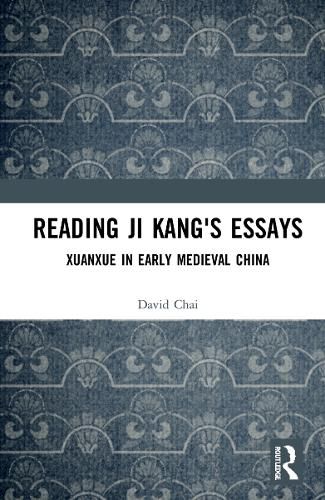Readings Newsletter
Become a Readings Member to make your shopping experience even easier.
Sign in or sign up for free!
You’re not far away from qualifying for FREE standard shipping within Australia
You’ve qualified for FREE standard shipping within Australia
The cart is loading…






This is the first English-language book on the philosophy of Ji Kang. Moreover, it offers the first systematic treatment of his philosophy, thus filling a significant gap in English-language scholarship on early medieval Chinese literature and philosophy.
David Chai brings to light Ji Kang's Neo-Daoist heritage and explores the themes in his writings that were derived from classical Daoism, most notably the need for humanity to return to a more harmonious co-existence with Nature to further our own self-understanding. His analysis is unique in that it balances translation and annotation with expositing the creative philosophizing of Neo-Daoism. Chai analyzes the entirety of Ji Kang's essays, exploring his philosophical reflections on music, aesthetics, ethics, self-cultivation, and fate.
Reading Ji Kang/s Essays will be of interest to scholars and students of Chinese philosophy and literature. It offers the first comprehensive philosophical examination of a heretofore neglected figure in Neo-Daoism.
$9.00 standard shipping within Australia
FREE standard shipping within Australia for orders over $100.00
Express & International shipping calculated at checkout
This is the first English-language book on the philosophy of Ji Kang. Moreover, it offers the first systematic treatment of his philosophy, thus filling a significant gap in English-language scholarship on early medieval Chinese literature and philosophy.
David Chai brings to light Ji Kang's Neo-Daoist heritage and explores the themes in his writings that were derived from classical Daoism, most notably the need for humanity to return to a more harmonious co-existence with Nature to further our own self-understanding. His analysis is unique in that it balances translation and annotation with expositing the creative philosophizing of Neo-Daoism. Chai analyzes the entirety of Ji Kang's essays, exploring his philosophical reflections on music, aesthetics, ethics, self-cultivation, and fate.
Reading Ji Kang/s Essays will be of interest to scholars and students of Chinese philosophy and literature. It offers the first comprehensive philosophical examination of a heretofore neglected figure in Neo-Daoism.